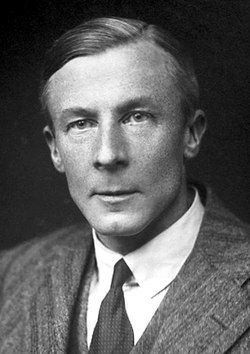| Years in office | Name | Notes | Image |
|---|
| 1907–1910 | Sir William Selby Church, 1st Baronet | First president of the RSM in 1907, Church had chaired the preceding two years of negotiations to form the RSM. [3] |  |
| 1910–1912 | Sir Henry Morris, 1st Baronet | |  |
| 1912–1914 | Sir Francis Champneys | Obstetrician, elected president in 1912, and in the same year supported Sir William Osler in the founding of the History of Medicine Section. [4] |  |
| 1914–1916 | Sir Frederick Taylor, 1st Baronet | |  |
| 1916–1918 | Sir Rickman Godlee | |  |
| 1918–1920 | Sir Humphry Rolleston | |  |
| 1920–1922 | Sir John Bland-Sutton | |  |
| 1922–1924 | Sir William Hale-White | |  |
| 1924–1926 | St Clair Thomson | |  |
| 1926–1928 | Sir James Berry | |  |
| 1928–1930 | Bertrand Dawson, 1st Viscount Dawson of Penn | |  |
| 1930–1932 | Thomas Watts-Eden | | |
| 1932–1934 | Vincent Warren Low | | |
| 1934–1936 | Sir Robert Hutchison, 1st Baronet | | |
| 1936–1938 | Sir John Herbert Parsons [5] | | |
| 1938–1940 | Sir William Girling Ball | | |
| 1940–1942 | Sir Archibald Montague Henry Gray | Gray was a dermatologist who in 1913 became secretary to the dermatology section at the RSM. [6] Between 1920 and 1924 he was the RSM's honorary secretary, and subsequently was appointed honorary treasurer. [6] | |
| 1942–1944 | Sir Henry Letheby Tidy | | |
| 1944–1946 | Sir Gordon Gordon-Taylor | |  |
| 1946–1948 | Sir Maurice Cassidy | | |
| 1948–1950 | Sir Henry Hallett Dale | |  |
| 1950–1952 | Alfred Webb-Johnson, 1st Baron Webb-Johnson | | |
| 1952–1954 | Sir Francis Walshe | | |
| 1954–1956 | Sir William Gilliatt | | |
| 1956–1958 | Sir Clement Price Thomas | | |
| 1958–1960 | Sir Geoffrey Marshall | | |
| 1960–1962 | Edgar Adrian, 1st Baron Adrian | |  |
| 1962–1964 | Sir Terence Cawthorne | | |
| 1964–1966 | Henry Cohen, 1st Baron Cohen of Birkenhead | |  |
| 1966–1967 | Arthur Porritt, Baron Porritt | |  |
| 1967–1969 | Sir Hector MacLennan | | |
| 1969–1971 | Sir John Samuel Richardson | | |
| 1971–1973 | Sir Hedley Atkins | | |
| 1973–1975 | Sir John Stallworthy | | |
| 1975–1977, 1978 | (acting) Sir Gordon Wolstenholme | | |
| 1977–1978 | Sir John Vivian Dacie | | |
| 1978–1980 | Sir Rodney Smith, Baron Smith | | |
| 1980–1982 | Sir John Stallworthy | | |
| 1982–1984 | Sir James Watt | | |
| 1984–1986 | John Walton, Baron Walton of Detchant | | |
| 1986–1988 | Sir Gordon Robson | | |
| 1988–1990 | Sir Christopher Booth | | |
| 1990–1992 | Sir David Innes Williams | | |
| 1992–1994 | Sir George Pinker | | |
| 1994–1996 | Sir Donald Harrison | | |
| 1996–1998 | Sir Christopher Paine | | |
| 1998–2000 | Lord Soulsby of Swaffham | | |






















